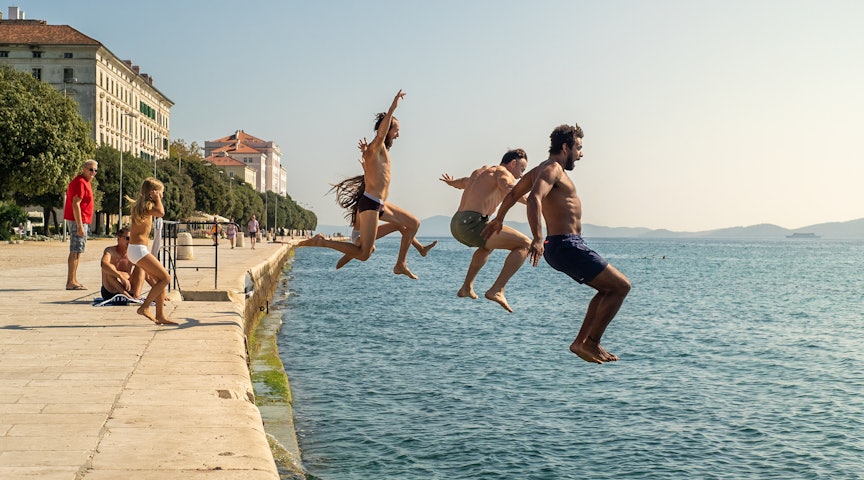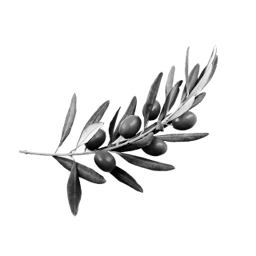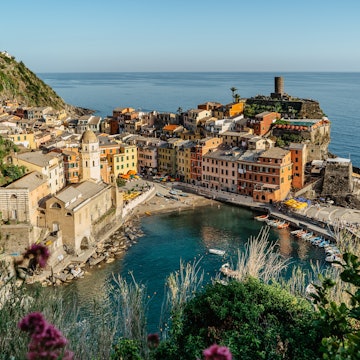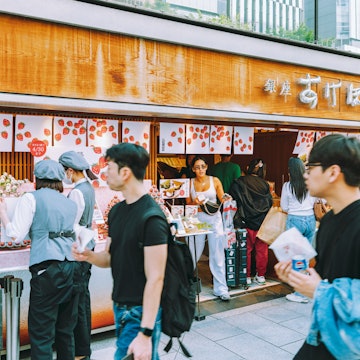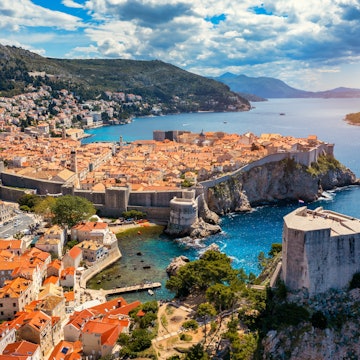

Local wine in Korčula, Croatia. Antonio Petrone/Shutterstock
Croatian cuisine is less a single story and more a collection of regional dialects – spoken in stews, seafood, pastries and every olive oil drizzle in between. Shaped by geography and history, the country’s culinary identity stretches from the truffle-rich hills of Istria to the sun-drenched shores of Dalmatia, from Ottoman spices in Slavonia to Austrian echoes in Zagreb.
First-time visitors to Croatia are often surprised by how regional the food is. Inland, expect hearty stews, paprikas and meats slow-cooked until they fall off the bone. On the coast, it’s all about fresh seafood kissed by the grill, olive oil that tastes like sunshine and vegetables that grew a few meters from your plate. But across it all, there’s a shared belief: food is meant to be savored, shared and talked about – preferably over rakija. Here’s what to eat and drink in Croatia.
Chow down on čevapčići
These rissoles made of ground meat flavored with garlic and paprika are a staple of Croatian restaurants and takeaways. Try them with a fluffy flatbread called lepinja, served with chopped onions and ajvar (red pepper relish).
Where to try it: You’re rarely far from somewhere that serves ćevapčići, from the rustic roadside tables at Zlata Dragove on Dugi Otok to the posh version on offer at Tač in Zagreb.

Tear into peka, Croatia’s slow-food soul
Lamb, veal or octopus is tucked under a bell-like dome and slow-roasted over embers, sealed in with vegetables, garlic, wine and herbs. What emerges hours later is impossibly tender, deeply aromatic and infused with a smoky whisper of firewood.
Where to try it: Restaurant Stermasi on Mljet is legendary for octopus peka (reserve in advance). Near Šibenik, Konoba Vinko does a standout veal version beloved by locals.
Grate fresh truffles over everything in Istria
Truffles are not rare in Istria – they’re routine. Locals use dogs to sniff them out then grate them generously over handmade fuži pasta or scrambled eggs. The black truffles are flavorful and earthy; the prized white ones are sharper, wildly fragrant and a lot pricier.
Where to try it: Go full truffle at Zigante in Livade or, for something more rustic, sit under the fig tree at Konoba Mondo in Motovun.

Feast on grilled fish and blitva by the sea
Dalmatian fish is best when barely touched – just salt, olive oil and maybe a sprig of rosemary. Look for orada (gilthead sea bream), brancin (sea bass) or lignje (squid). Blitva – chard and potato sautéed in garlic and oil – is the perfect rustic side.
Where to try it: Konoba Menego on Hvar is seafood artistry on a plate. In Dubrovnik, try Proto for old-school elegance or Lokanda Peskarija for a more casual harborside vibe.
Savor crni rižot, the Adriatic’s inky delight
Croatia’s beloved black risotto, crni rižot, gets its signature hue from cuttlefish ink. Cooked slowly with rice, garlic, red wine and seafood (usually squid or cuttlefish), this dish is briny, rich and deeply satisfying.
Where to try it: Konoba Matejuška in Split serves a perfectly balanced crni rižot. On Vrgada, a tiny island across Pakoštane, check out Adrijana Grill for a faultless version of the dish.
Try Skradinski rižot, a slow-cooked labor of love
This velvety, melting risotto from the town of Skradin is traditionally made by men, simmered for up to 10 hours until the veal becomes one with the rice. It’s often served at weddings or festivals – and increasingly at restaurants that honor old techniques.
Where to try it: Konoba Toni in Skradin is the go-to for a lovingly made version (order in advance). Or check out Pelegrini in Šibenik for a refined take.
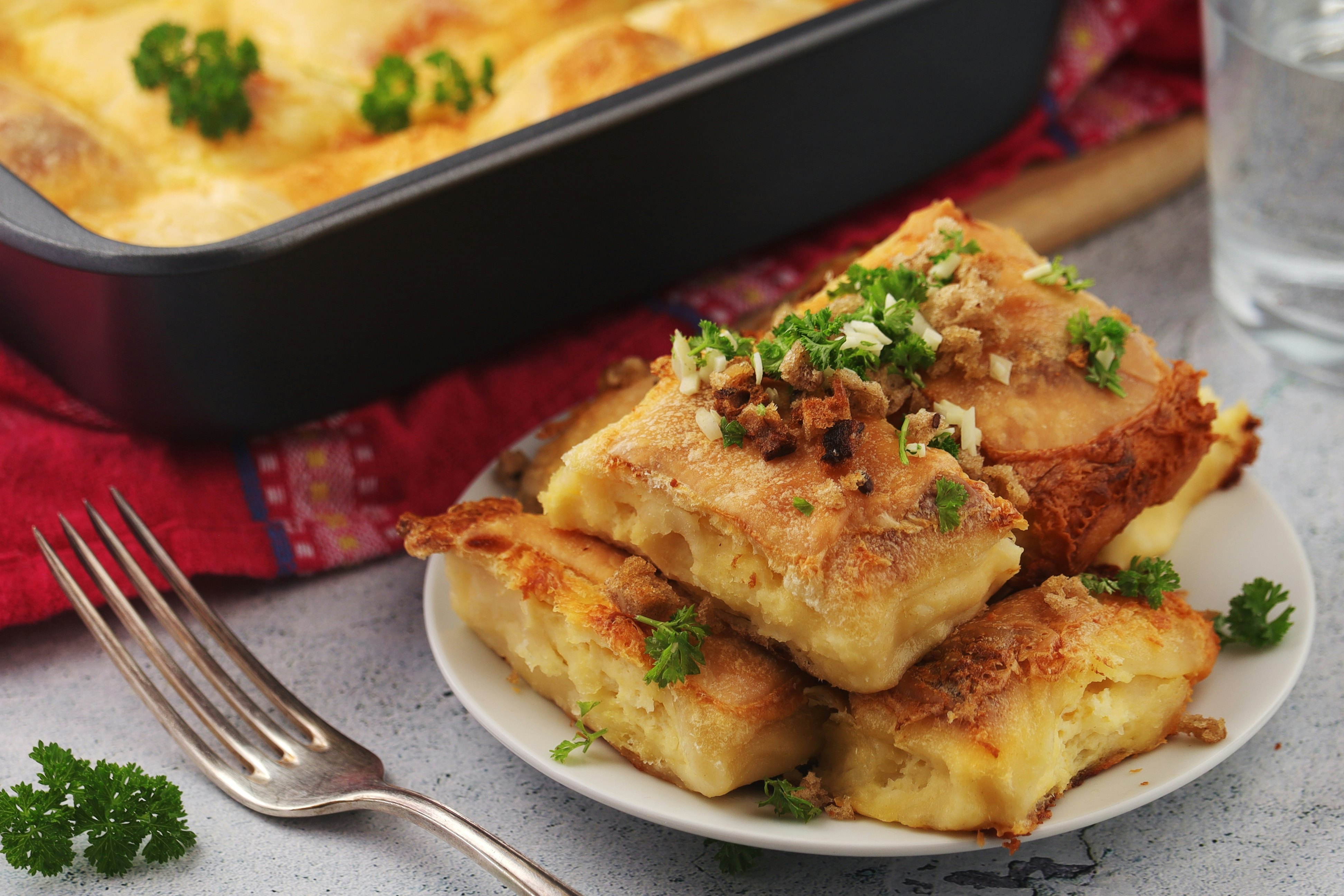
Sink your fork into štrukli, Zagreb’s softest side
Warm, pillowy and unapologetically rich, štrukli are baked or boiled dumplings filled with fresh cottage cheese and sour cream. The baked ones emerge golden and bubbling, with edges that crackle under your fork, giving way to soft tangy filling. A dish rooted in Zagorje’s countryside, it’s now a comfort food staple across Zagreb.
Where to try it: La Štruk in Zagreb does štrukli every way imaginable. For a more elegant take, head to the Le Bistro at Esplanade Hotel.
Snack on Komiška pogača on the island of Vis
Named for the fishing town of Komiža, this is Dalmatia’s answer to focaccia: yeasty dough filled with salted anchovies, tomatoes and onions, folded and baked until golden.
Where to try it: Fabrika in Komiža bakes it fresh daily. Wash it down with a glass of local plavac mali wine.
Spice it up with fiš paprikaš
The neighboring river-rich regions of Baranja and Slavonia were once part of Hungary, so it’s not surprising to find paprika taking center stage. To make fiš paprikas, freshwater fish – usually carp, pike or catfish – is simmered in wine, onions, tomatoes and, of course, fiery ground paprika. It’s usually served with homemade noodles.
Where to try it: Just across the Drava River in Osijek is Čarda kod Baranjca, which has several versions of the dish.

Explore one of Croatia’s wine routes
Croatia has more than 300 wine regions and at least 130 grape varieties found nowhere else in the world. The choice is huge: teran and malvazija in Istria, graševina in Slavonia, žlahtina in Krk, plus so many in Dalmatia – plavac mali, grk, pošip, dingač, babić, just for starters.
Where to try it: Zure winery in Korčula makes exceptionally good white grk to go with superb plavac mali.
Vegetarians and vegans
Croatia is traditionally meat- and fish-heavy, especially outside urban areas. But those looking for plant-based options will still find plenty to love. Istria’s wild asparagus, soparnik (thin dough with Swiss chard and onions), grilled vegetables and bean stews (grah) are vegetarian. In bigger cities like Zagreb, Split and Rijeka, vegan and vegetarian spots are popping up – look for creative local twists on meat-free classics.
Where to go: Zrno Bio Bistro in Zagreb is fully organic and plant-based. Upcafe in Split offers vegan versions of traditional dishes.
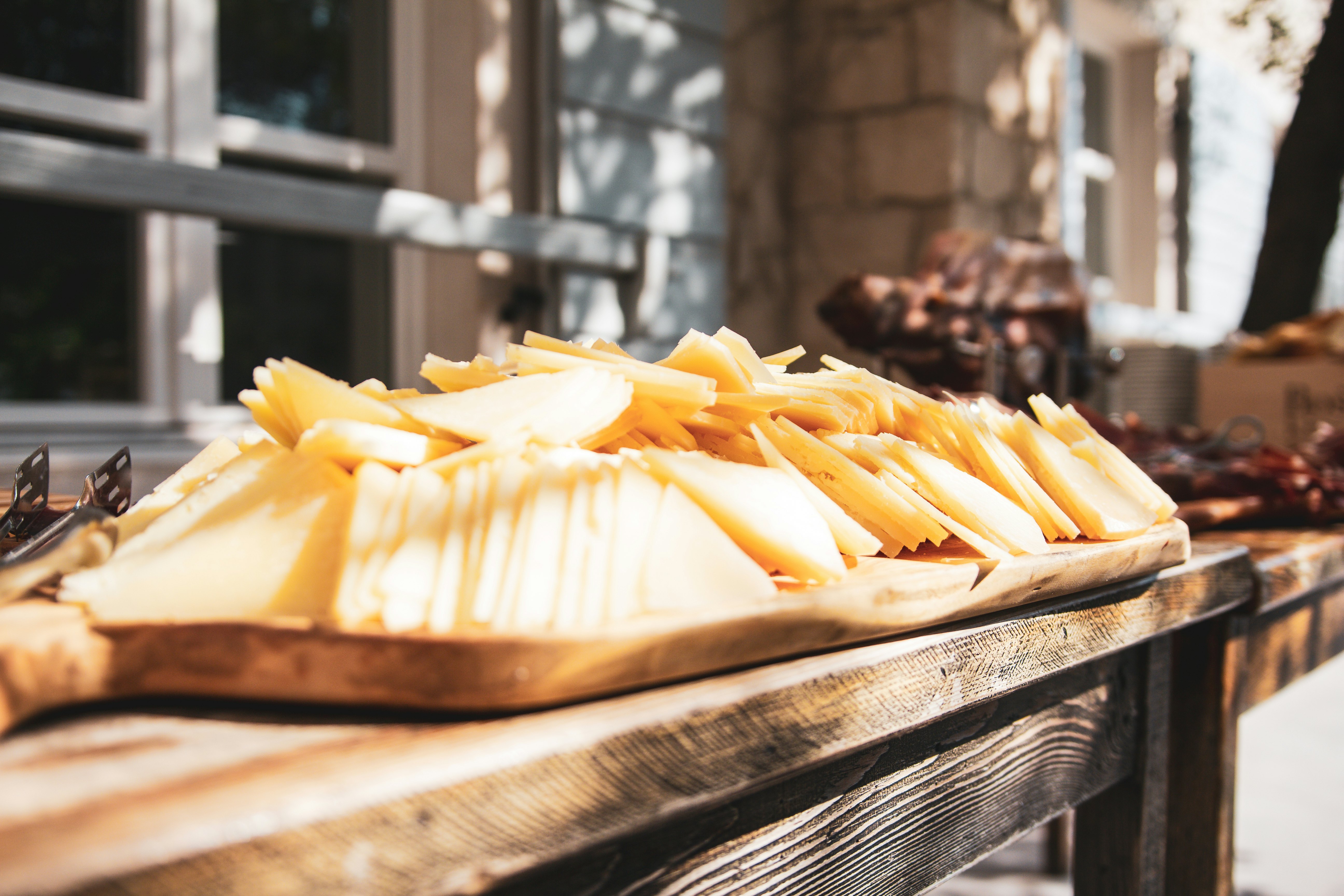
Foods worth trying
Pag cheese (Paški sir): Hard sheep’s cheese from the island of Pag, aged and salty, often paired with local honey or prosciutto.
Malostonske kamenice (Mali Ston oysters): Briny, plump and served fresh with just a squeeze of lemon – these oysters from Mali Ston Bay have been prized since Roman times.
Baranjski kulen: A paprika-spiked pork sausage from the Baranja region, smoked and aged until richly flavored and slightly spicy. A national treasure with PGI status.
A year in food
While local food and wine festivals go into full swing come autumn, there’s never a bad time to eat well in Croatia.
Spring (March–May): Wild asparagus show up in markets. Lamb is often roasted for Easter. Coastal towns welcome the first catch of squid and sardines. Korčula celebrates its food and wine in an April festival, and Istrian winemakers throw open their cellar doors on the last Sunday in May.
Summer (June–August): Figs ripen, tomatoes go into everything and grilling takes over. Simple fish dishes dominate coastal menus. It’s also peak festival season – food events abound in Istria and Dalmatia.
Autumn (September–November): Truffle season begins in Istria. Grapes are harvested, olives are pressed. Chestnuts appear in cakes and heartier stews return inland. Don’t miss Dubrovnik's Good Food Festival in October.
Winter (December–February): Time for sarma, bakalar and plenty of warming dishes. Advent markets sell fritule (mini doughnuts), sausages and hot mulled wine.
Local Flavors of Dalmatia
Take your Croatia trip with Lonely Planet Journeys
Time to book that trip to Croatia
Lonely Planet Journeys takes you there with fully customizable trips to top destinations–all crafted by our local experts.
